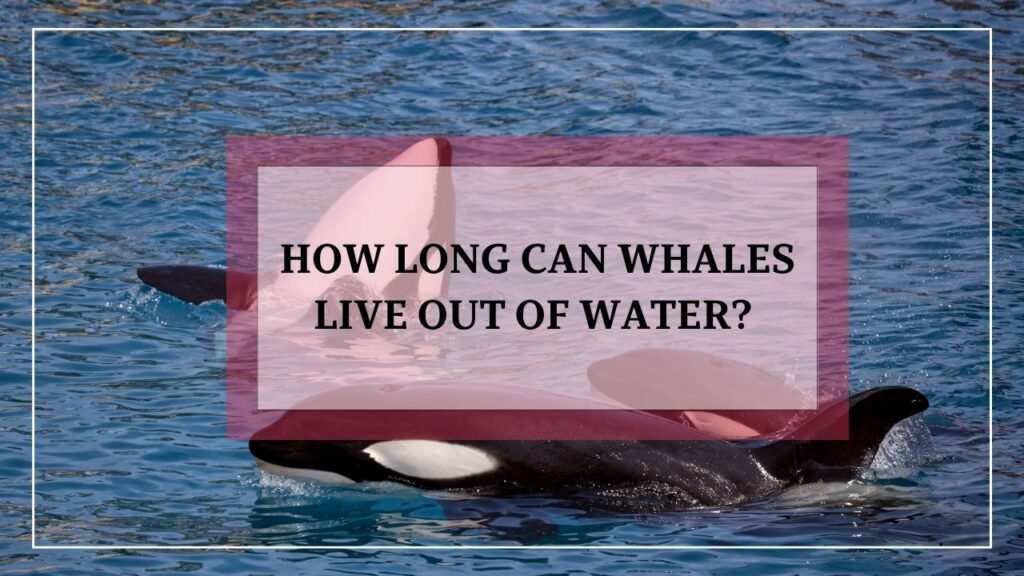Have you ever seen a whale breaching out of the water and wondered how long it could survive outside of its natural habitat? It’s a fascinating question and one that I’m excited to explore with you today.
But as awe-inspiring as whales may be, they’re also complex creatures with unique adaptations that allow them to thrive in their underwater world.
And while they may occasionally venture out of the water for a variety of reasons, including hunting, socializing, or simply exploring their surroundings, the question remains: how long can they survive out of water?
In this blog post, we’ll delve into the fascinating world of whales and explore the factors that affect their survival outside of water. We’ll also take a look at some examples of whales found out of the water, both in the wild and in captivity.
How Long Can Whales Live Out Of Water?

Whales are adapted to living in the water, and while they can survive outside of water for a short period of time, the amount of time they can stay out of water varies depending on several factors, including the size and species of the whale, its physical condition, and the temperature and humidity of the environment.
Researchers and scientists say that they can survive for a couple of hours. Smaller whales, such as the beluga whale, can only survive out of water for a few minutes, while larger whales, like the sperm whale, can hold their breath for over an hour.
However, it’s important to note that whales are not designed to live outside of water for extended periods of time.
Without the buoyancy and support of water, their massive bodies can quickly become strained, leading to serious injury or even death.
Therefore, it’s crucial that we work to protect their natural habitat and prevent human activities that can harm them, such as pollution, overfishing, and noise pollution.
Factors affecting whales’ survival outside of water
There are several factors that can affect a whale’s ability to survive outside of water, including:
Temperature And Dehydration
Whales are warm-blooded animals, which means they regulate their body temperature internally. When a whale is out of the water, it is exposed to the elements, including heat or cold.
If a whale is stranded on a hot beach, it can quickly become dehydrated and overheated, which can lead to serious health problems or even death. Similarly, if a whale is stranded in a cold environment, it can suffer from hypothermia and other cold-related injuries.
Gravity And Weight
Whales are massive creatures, with some weighing over 100 tons. When a whale is out of the water, its weight puts a tremendous strain on its body, especially its internal organs.
Without the support of water, the weight of the whale can cause its organs to compress, leading to serious injury or death.
Physical Limitations Of The Whale’s Body
Whales are adapted to live in the water, and their bodies are designed for this environment. Their streamlined shape and blubber layer help them to move through the water efficiently and stay warm.
When a whale is out of the water, its body is not designed to support its weight or move in the same way as it does in water. This can cause stress on the whale’s muscles, joints, and bones, leading to injuries and long-term health problems.
FAQs
Can A Whale Breathe Out Of Water?
No, whales cannot breathe out of water. They are air-breathing mammals that are adapted to living in the ocean, and they need to surface to breathe air.
Can Whales Live On Land?
No, whales cannot live on land. They are adapted to living in the water, and their bodies are not designed to support their weight on land.
Do Whales Die When They Stop Swimming?
No, whales do not die when they stop swimming. They are capable of resting and sleeping while floating or even just stationary in the water. However, if a whale is stranded on land or in shallow water for too long, it can suffer from dehydration, overheating, or other health issues that can lead to death.

